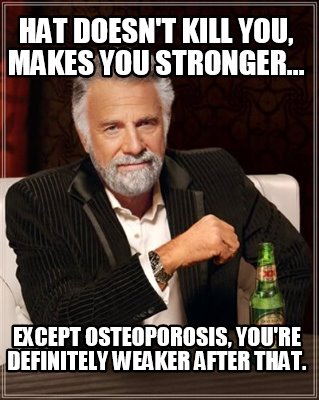If you lack self-confidence and are not lucky enough to feel fabulous, you need to get some self-confidence. You might wonder how self-confidence can help you get better treatment. Here's how.
If you walk into a doctor's office knowing your adrenal insufficiency information, you know more than the doctor. You've probably read more and you have definitely experienced more. Doctors like to say adrenal insufficiency is complicated. It's not. If you don't understand AI, it IS complicated. What they are saying is that they don't understand adrenal insufficiency. You can't expect them to understand it. YOU have to understand it. When you come in acting self-confident (not overbearing) and matter of fact, you will make them feel like they ought to step up and fake their own self-confidence.
A self-confident person walks into the office and says:
1. Here is a paper listing my current meds and dosing schedule. At the bottom is a list of the refills I need with the name of the med, the strength and the number of refills. .
a. I call the nurse a month before my appointment and ask for orders so there is something to talk about in the appointment. Without the numbers, a doctor should not even know where to start making changes in your meds. Get your results ahead of time, know what they mean and go in being an informed consumer.
b. Know about each and every test you want ordered. There's no excuse for not knowing what tests you need. NONE. If your doctor has refused in the past, bring ONE piece of excellent, reputable, medical documentation that backs your position. Ask what the harm would be in getting DHEA-S tested, for example. What would be the harm of replacing one of the most abundant hormones in the human body to mid-range levels, it's good for bone density and an androgen precursor!
c. State all of these things as matter of factly as possible. No big deal. This is what you always get done. Even if it isn't what you always get done, pretend it is.
2. If you have issues that need to be addressed, put the top three on a separate piece of paper. You have one copy, the doctor has another. Bring a pen and paper and eagerly await his answers. Write them down. Insist on follow up testing and a follow up appointment to discuss results and their meaning. Do all of this at once so you can streamline the conversation.
What self-confidence comes down to is educating yourself and clearly asking for what you ought to have tested and treated as someone with adrenal insufficiency.
